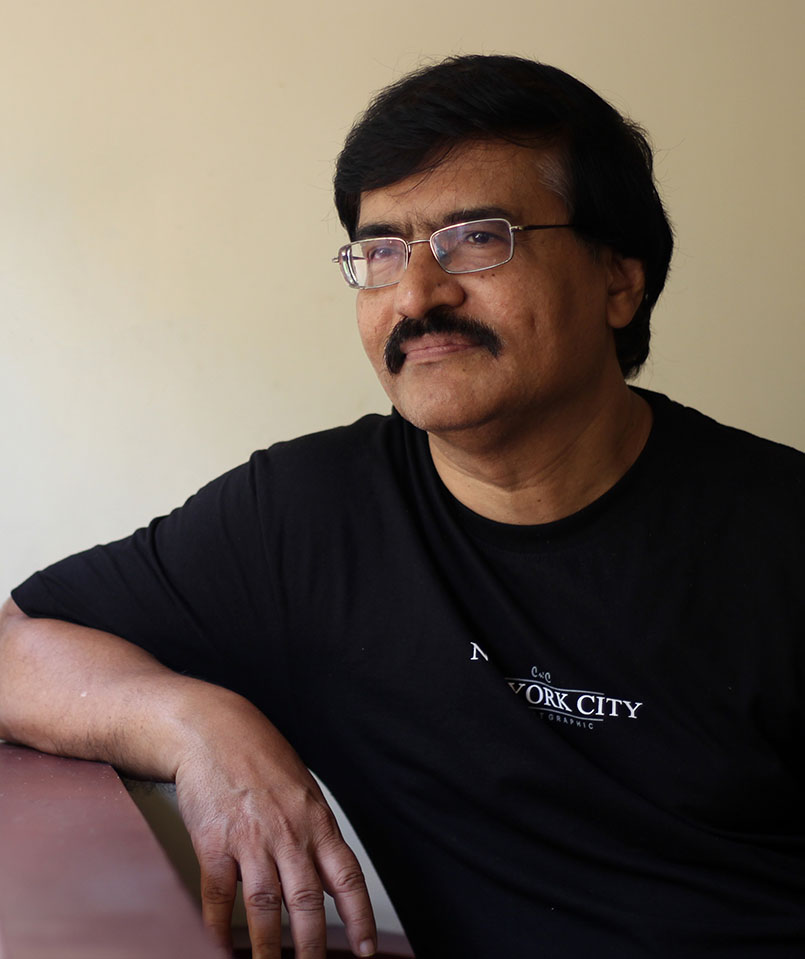“Each one of us has the power to make others feel better or worse. Making others feel better is much more fun than making others feel worse. Making others feel better generally makes us feel better”.
 Controversy has erupted over the decision of the Hon Chief Justice of India (CJI) to call a three-day conference of the Chief Justices of the High Courts of India at New Delhi, starting on Good Friday and ending on the Easter day. Good Friday is a public holiday. Easter too becomes a holiday since it falls on a Sunday. These days are religiously sacred for Christians. As such, the CJI’s choice of the slot for the conference apparently did not go down well with many in the Christian community. There are views supporting and opposing the decision of the CJI. On the one end we have people arguing that the CJI’s decision has hurt the religious sentiments of the Christian minority in India while on the opposite end the decision is justified saying that duty comes first and that even in a predominantly Christian country like the US, Good Friday is not a public holiday. I am inclined to believe that more than decision on the conference dates, what is really disturbing is the manner in which the CJI responded to reservations expressed by the concerned people and also the way one of his brother judges went overboard with his secular passions.
Controversy has erupted over the decision of the Hon Chief Justice of India (CJI) to call a three-day conference of the Chief Justices of the High Courts of India at New Delhi, starting on Good Friday and ending on the Easter day. Good Friday is a public holiday. Easter too becomes a holiday since it falls on a Sunday. These days are religiously sacred for Christians. As such, the CJI’s choice of the slot for the conference apparently did not go down well with many in the Christian community. There are views supporting and opposing the decision of the CJI. On the one end we have people arguing that the CJI’s decision has hurt the religious sentiments of the Christian minority in India while on the opposite end the decision is justified saying that duty comes first and that even in a predominantly Christian country like the US, Good Friday is not a public holiday. I am inclined to believe that more than decision on the conference dates, what is really disturbing is the manner in which the CJI responded to reservations expressed by the concerned people and also the way one of his brother judges went overboard with his secular passions.
There are two Christian holy days in the list of public holidays observed by the government of India. These are Christmas and Good Friday. The first Christmas day, after the new government took over fell on 25.12.2014. This day was converted into ‘Good Governance’ day. The Christian community was unhappy about it. After all, good governance is not a one-day wonder. It was difficult to view the government decision as an innocuous step. The communal proclivities of the ruling party has been evident. The primary target of the fringe groups of the party has been Christians, be it Ghar Vapasi, badmouthing of people or attack on institutions. Those who cry themselves horse about mass conversions have no interest in the truth that after nearly two thousand years of proselytization, the number of Christians in India remains just around 2.5% of its population. They also fail to recognize the fact that only few Christian sects carry out Gospel work aimed at conversion. Since even the miniscule Christian population remains scattered among various sects, Christians are not a vote bank for the political parties. In an environment that makes the community wary of every step, it was but natural that some Christians felt apprehensive when the CJI chose to hold the judicial conference on a Good Friday, the only other sacred public holiday of the community.
As a secular minded Christian, I do not find anything alarming about the decision of the CJI to use the rare occurrence of consecutive holidays for the judicial conference. We have just twenty-four High Courts in this country. Although I do not know the exact number of Christians, if any, heading these courts, it certainly cannot be many. From the Supreme Court, only a couple of senior judges along with the CJI had to participate in the conference. Participation was voluntary for the rest. Beyond the members of the judiciary, many other officials too would forgo their holidays and holy days in order to take care of the conference arrangements. That the conference might affect the religious rights of a few Christians to worship on the sacred days set apart as holidays, should not per se be a cause of distress for the Christian community. But one should also keep in mind that the Supreme Court is the ultimate protector of the religious rights of the citizens of this nation as enshrined in the constitution. This being so, the CJI was duty bound to be sympathetic towards the concerns of those who had problems in participating for reasons of their religious commitments. He should also have factored in the concerns of the community as a soft target for communal discrimination. But, the manner in which the CJI chose to respond, when the matter was mentioned orally before him in the open court by advocate Lily Thomas and also when concerns were raised by a fellow judge of the Supreme Court Justice Kurian Joseph through a letter written to the CJI, seems to have left a bad taste in the mouth.
Before I take up the issue of the CJI’s response in the matter, let me briefly explain for the benefit of those not conversant with Christianity, how the dates chosen for the judicial conference are sacred for Christians. Good Friday is actually sad Friday since it was on this day some two thousand years ago, that Jesus Christ was tortured and crucified at Calvary, a hill close to Jerusalem. Yet the day is observed as ‘Good Friday’ since it is part of the Christian faith that Jesus has given deliverance to the faithful from their sins through his sacrificial death on the cross. The Sunday immediately following Good Friday is commemorated as Easter, the day of resurrection of Jesus. Thus, Good Friday is a day of solemn mourning and Easter, a day of happy celebration. In fact, the whole week starting from Palm Sunday, that marks the journey of Jesus to the Jewish temple at Jerusalem, is observed by Christians as ‘Passion Week’. On Palm Sunday Jesus entered the temple courts and evicted all who were buying and selling, telling them that they had converted the house of prayer into a den of robbers. The following Thursday (Maundy Thursday) Jesus had his Last Supper in the company of his disciples. Late that night he was arrested by the guards of the Jewish religious authorities. The trial went through the night and Jesus was crucified by noon the next day (Good Friday) for his alleged crime of blasphemy. Easter falls on the following Sunday.
The fifty days prior to Easter are days of penance for Christians. Churches hold special services on these days. On Good Friday, for some Christian sects, the service commences the previous night to coincide with the time of the capture of Jesus and continue well into the afternoon until the time of his agonising death on the cross. Most Christians consider it a sacred obligation to attend the Good Friday service. Even people who are not regular Churchgoers attend the Good Friday services since they believe that their saviour suffered on the cross for them and they must share in his agonies. On Easter day, the Church services start before dawn.
Now, let me turn to the responses of the CJI. When the issue was mentioned by advocate Lily Thomas before the CJI, he reportedly responded by saying that the conferences were held on Valmiki Day in 2007 and on Independence Day in 2009. “In 2007 and 2009, nobody had any grievance. What happened to spirituality back then?” the CJI asked. Let me confess that I have neither the qualification nor the inclination to challenge the wisdom of the CJI. Yet, it is clear as day that his comment was loaded. The sarcasm of his words is unmistakable. It sounded suggestive of a conspiracy to flog a dead horse. The CJI seemed to question the integrity of the people expressing their bona fide concerns. The unfortunate comment of the CJI may also be construed to indicate a view that Christians have no true regard for the days of the death and resurrection of Christ, but are only making a hue and cry with ulterior motives. Such reactions coming from the top judicial authority of the nation certainly disturbs.
A fact checking on the CJI’s comments would reveal that Valmiki day has never been an approved public holiday. It has only been a Restricted Holiday which, subject to a maximum of two in a year, could be availed of as per individual choice. Independence Day (15 August) is one of the three National Holidays. Republic Day (26 January) and Gandhi Jayanti (2 October) are the other two. (Incidentally, the BJP government in Goa recently made an abortive attempt to delete Gandhi Jayanti from its list of public holidays to give an additional holiday for Ganesh Chaturthi). My understanding is that it is mandatory for all across the nation to observe the three national holidays. I leave it to the reader to decide the appropriateness of the CJI holding a conference on the Independence Day. My limited point here is that there was no issue of “spirituality back then” on the previous occasions mentioned by the CJI. Of course, the CJI had also added, “If you want to oppose it, please file a petition and let the court take a decision”. But it is unlikely that a petition would have served any useful purpose after the CJI revealed his mind on the matter through his comments.
It later transpired that Justice Kurian Joseph had written a letter to the CJI conveying his inability to attend the conference scheduled for Good Friday because of his religious commitments. He also raised the issue of the appropriateness of CJI arranging meetings on religious holidays. He wrote, “Please don’t think that I am striking a communal note. Only since I see institutions like ours, which are otherwise bound to protect the secular ethos and project secular image as per mandate of Constitution, are slowly drifting away from the constitutional obligations, I thought of putting this concern in writing.” This letter was reportedly sent some fifteen days prior to the scheduled commencement of the meeting on 18.03.2015, although it became a talking point in the public domain only after CJI’s comments in the open court. The CJI replied to Justice Kurian Joseph reiterating his decision to stick to the conference dates. And the CJI added, “The question that I have to ask myself, perhaps I can’t ask you, is whether it is institutional interest or individual interest that one should give preference to. As far as I am concerned, I would give priority to former and not to the latter…..assuming that religious ceremonies and family get together are more important than institutional interest, you (Justice Joseph) could have asked your family to join you in Delhi. Several other participants are coming from distant places, leaving behind families.”
Few people would doubt that the response of the CJI circumvents the fundamental issue raised by Justice Kurian Joseph. The CJI was attempting to turn the table on his fellow judge by reducing the reservations raised by Justice Kurian Joseph as a mere case of resentment springing from the conference botching his plans to celebrate his holidays with his family. The CJI conveniently chose to ignore the reality that the need for Justice Kurian Joseph to be with his family arose out of the religious commitments of the family during the sacred days of the Passion Week. It is sad that the CJI should be attempting to paint one of his brother judges as a person who would ignore the institutional interest to be in the happy company of his family. I learn from people who know Justice Kurian Joseph that he is a judge reputed for his professional dedication and uprightness. I wonder whether it was fair for the CJI to denigrate a brother judge to buttress his viewpoint. It was also reported by the media that the CJI had made copies of the letter written to him by Justice Kurian Joseph and his reply to it and distributed these to the conference participants. I do not know whether this is the standard practice. I do not know whether it was proper and prudent to make the contents of the correspondence between a judge of the Supreme Court and the CJI, a matter of high decibel media debate.
The Supreme Court is the protector of the constitution and the rights it guarantees to the citizens. The right to religious faith is a fundamental right of every citizen. I believe that the secular ethos of the nation has ensured protection of the right of Christians to worship on the two most sacred days, Christmas and Good Friday, by approving these days as public holidays. In view of this, it was expected of the CJI to be more considerate in his response to the reservations raised before him about the conference dates. Does it augur well for the prestige and credibility of the most revered institution of our democracy to indulge in such public spats? As a plain citizen, I wish that the CJI had dealt with the matter with more tact and empathy. The CJI has himself said later, “I am the head of the family and in our family if one member questions me, we will settle it ourselves. It should not go out of the family.” Unfortunately, the damage was already done by the time this wisdom dawned upon the CJI.
In an article appearing in the Hindu daily of 08.04.2015, Supreme Court advocate Sanjay Hegde points out occasions from the life of Jesus to suggest that Jesus did not object to working on religiously sacred days. He says that Jews were prohibited from working on the day of the Sabbath (Saturday). Yet Jesus healed the sick on the Sabbath day and his hungry disciples plucked corn from the nearby fields and ate on a Sabbath day. When the Jewish leaders objected, Jesus said, “Which of you doesn’t work on the Sabbath? If your son or your cow falls into a pit, don’t you rush to get him out?” (Luke 14:5, NLT). Perhaps the comparison is rather too farfetched. I believe that what Jesus had tried to explain was the fallacy of taking religious commands in its literal sense and sticking to it at the cost of being compassionate to people. A sick needs immediate cure and the hungry disciples had to eat for the strength to walk to their destination. Jesus wanted people to be practical, kind and compassionate when administering the law. (Jesus had to suffer death for such a view which was interpreted as against the Jewish law). It was because of this spirit of compassion that he preached and practiced, Jesus let a prostitute go free instead of allowing her killing by stoning as required by the letter of the Jewish law. As Jesus said, laws are for people and not people for the law. But it is difficult to interpret such instances as a call for abandoning the observance of sacred days. It is a choice of the individual when such a right is already guaranteed by the law. For instance, I did not participate in this year’s Good Friday or Easter services. That was my own personal choice. But others have a right to exercise that choice and participate. My humble view is that it may not be a healthy practice to ignore or ridicule the religious choices of people, irrespective of the size of their population or their political relevance.
As the controversy snowballed, a former (Christian) Judge of the Supreme Court came out in defense of the CJI saying that there was nothing wrong in holding the conference on Good Friday because Good Friday is a working day in the United States of America. And a central Minister forthwith seized the view to justify official functions on Good Friday. Yes. In the US, Good Friday is not a Federal holiday. But, pray, why bring US into this? We are speaking of an issue arising in our country, which runs on its own Constitution. In India Good Friday is a gazetted religious holiday set apart to enable Christians to participate in the special worship programmes related to the day. The question is whether we are suggesting that we follow the US practice and scrap the public holiday on Good Friday. Taking the argument forward, should we also allow wanton public kissing and obscenity since the Americans do it… and permit explicit sex and nudity in the Indian movies since Hollywood allows it… Are we suggesting that we should make US our role model?
Incidentally, it is also my view that part of the blame for the sordid affair should borne by the Hon Justice Kurian Joseph. The responsibility to safeguard the trust and dignity of the highest court of this country rests with him too. He too could have tried to find a resolution for his objections without attempting to get even in the public glare. It does not serve the long-term interests of this nation to create avoidable controversies and imaginary communal scares. Was a letter conveying his concerns to the Prime Minister and President of India essential? It is difficult to believe that the Christians in India have suddenly become an endangered species. At least, I do not believe it although it is essentially a matter of perspective. In any case, I do not believe that this open acrimony would benefit his community. It might only increase the communal divide. The judge could have quietly conveyed his inability to attend and simply kept away from the conference and the dinner hosted by the Prime Minister. It has been reported that only 24 out of the 48 Supreme Court judges participated in the conference. The Chief Minister of Kerala did not attend the PM’s dinner. But hardly anyone noticed it and there were no heated debates on it in the media. I understand that Justice Kurian Joseph is a highly devoted Christian and a preacher. I wish he had remembered the teaching of Jesus who said, “But I say unto you, Love your enemies, bless them that curse you, do good to them that hate you, and pray for them which despitefully use you, and persecute you” (Mathew 5:44, KJV). I am not questioning the genuineness of the concerns of Justice Kurian Joseph and his right to raise it. But, it could have been dealt with in ways that were more discreet to avoid the tragedy of this public spat entangling the highest judicial authorities.
I believe that the fundamental problem is NOT that official business is carried out on religious holidays. The problem is the perceptions of discrimination. It is also the perceptions of insensitiveness and arbitrariness. The problem is also that of disproportionate reactions.
Advocate Sanjay Hegde writes in the article mentioned above, “India is perhaps the only country where Jews, Muslims and Parsis live in amity with Hindus, Jains, Sikhs and Buddhists. On a holy day, while people pray, their friends outside the faith feel the benediction in equal measure. We cannot in good conscience, ask of a neighbour to sacrifice a holiday on a Good Friday or Eid, if a holiday on Diwali or Holi remains sacrosanct…Any impression that some religious holidays are too sacred to command work, while others are not must be strictly eschewed. No one must be made to feel that he or she worships a lesser God for whom the state cannot wait…”












Sir,
You have given a small sermon on Good Friday and Easter. Love your enemy.
Thanks Sam. I do not say what I do not believe. But, as I learn more and experience more, it is possible that what I believe today would undergo changes.